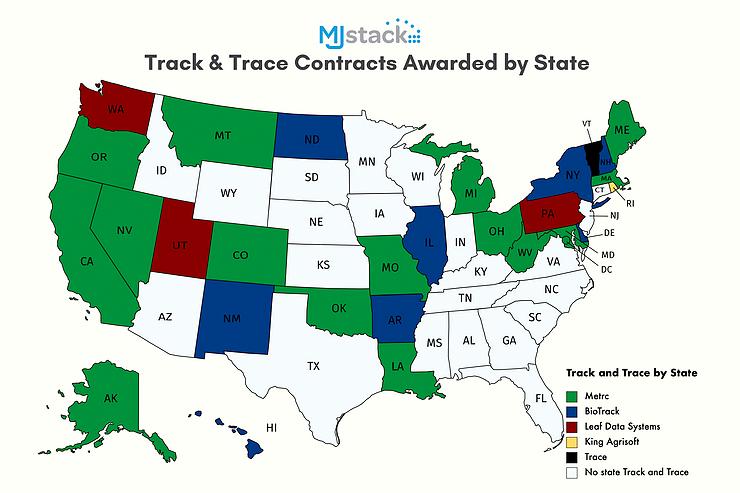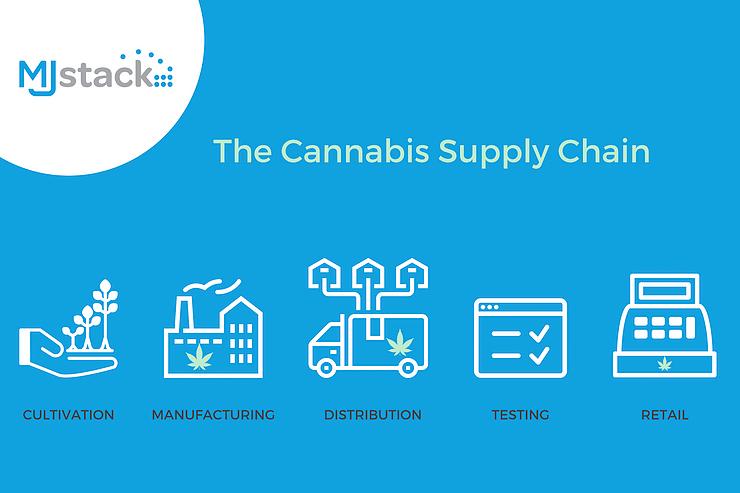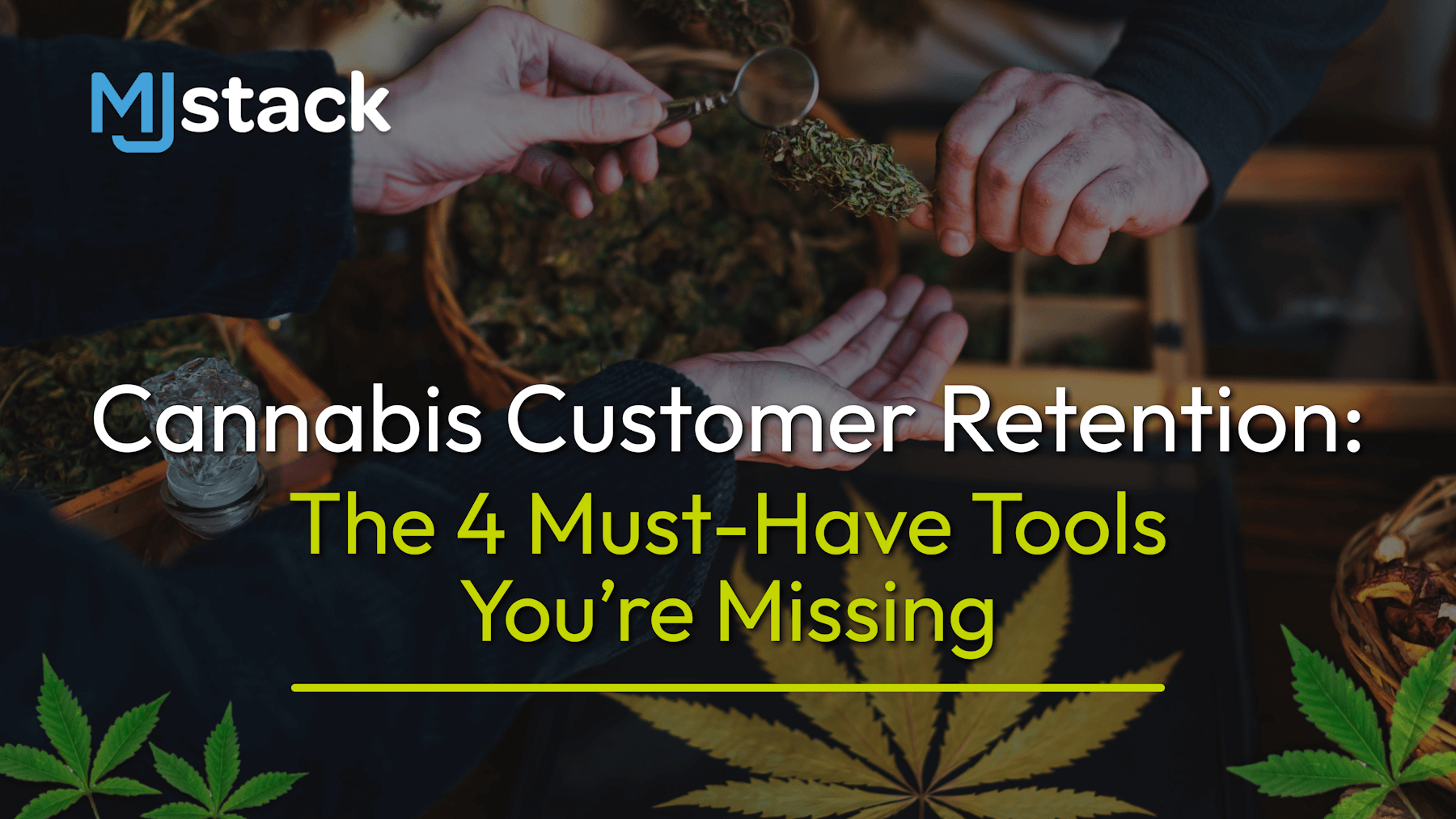So, you’re launching, or have launched, your new dispensary and are wondering how to set up your cannabis business to be the most operationally efficient and effective as possible. This includes thinking through the consumer in-store experience as well as how to best support your employees — everything from online/in-store menus, loyalty programs, point-of-sale and payments to banking and finances, HR and payroll, compliance and customer relationship management (CRM).
To seamlessly integrate all aspects of your business, you’re going to need some help. And you may be inclined to go with popular tools that have been changing the game in retail for years.
After all, if it’s a proven technology that gets results for other businesses, why can’t it do the same for yours? Because the cannabis industry is unlike any other and requires specialized services that ensure you are adhering to the always-evolving state regulatory guidelines.
In this article, we’re going to explore the main ways cannabis is different from every other industry out there and why you need to be investing in cannabis-specific technology for your business.
State-by-state regulations
One of the most important distinctions between cannabis and all other retail markets is the legalization — or lack thereof — in many states. At the time of writing this article, cannabis is still illegal at the federal level. This means that it’s up to the states to set the rules for cannabis operators in legal markets, which adds another layer of complexity.
Although we can likely expect that to change in the future, we also have to recognize that there are two distinct cannabis markets that each come with their own set of state-mandated regulations — medical and recreational. If you operate in a state that allows both medical and recreational cannabis, then this is going to impact the inventory, sales and reporting aspect of your business.
You’re probably familiar with Metrc (Marijuana Enforcement Tracking Reporting Compliance), the popular state-mandated traceability software platform developed for tracking the production, manufacturing, testing, distributing and selling of cannabis products.
Metrc ensures all cannabis businesses are operating under the proper compliance regulations, but there will be different guidelines for how you label, tag and sell your products to medical patients versus recreational users. And then there’s reporting. You must separate medical and recreational sales in your regular Metrc reporting, which means everything must be organized and configured accordingly to differentiate between the two in your point-of-sale (POS) system.
That said, Metrc is not the only track-and-trace system in the cannabis market. BioTrackTHC and MJ Freeway are two other industry-leading systems and whichever one your state mandates your business must use will dictate what types of third-party software you can or cannot integrate with.
That’s why you must opt for a POS software provider that best supports the track-and-trace system to best serve your unique business needs. While some of the more mainstream POS systems like Toast or Square may be highly effective for many retail businesses, they are not built to handle the regulatory nuances of the evolving cannabis industry.
Full supply chain visibility
Another big differentiator between cannabis and traditional retail industries is that all cannabis products must be tracked through the entire lifestyle — from seed to sale. Because this is still a highly regulated market, cannabis businesses are required to document each plant and product as it moves through the supply chain. In order to touch any part of the cannabis supply chain, you must have a valid license and there are very clear rules around obtaining one. This includes cultivators, manufacturers, distributors and retailers. Unsurprisingly, license distribution varies from state-to-state.
This distinction will tell you right from the start how you need to be thinking about your supply chain, especially as a dispensary at the end of the chain working with growers and wholesalers.
Then it becomes a matter of deciding which model is better for your business: a vertical or horizontal integration. If you choose to be vertically integrated, that means that your business owns all stages of the supply chain, instead of working with third-party partners and their tools. In some instances, the decision will be made for you if you operate in a state that mandates vertical cannabis operations.
Regardless of which type of integration, it’s pertinent that you have full visibility across this entire supply chain. That’s why it’s beneficial to find a cannabis-specific software partner that understands the intricacies of the cannabis industry.
Ideally, you want a technology partner that can help centralize your business data, automate time-consuming processes, and provide in-depth analytics and reporting metrics that allow your cannabis business to grow. Reporting is essential to the growth of your business but it’s also required to demonstrate necessary state compliance. Having a partner that can provide cannabis-specific reporting will take the burden off your staff from having to do manual data entry and reporting, which creates a much bigger margin for error.
Traditional supply chain software providers are ill-equipped to handle these complexities and you might end up getting your cannabis business into some legal hot water if you choose a more mainstream tech partner.
Banking/payments differences
Banking and payments remain a huge hurdle for many cannabis businesses. Even if you wanted to work with traditional banks and payment solution providers, you legally would not be able to do it because of the restrictions put in place from federal prohibition.
The restrictions on banking pose a unique challenge to the cannabis industry, which has dealt mostly with cash transactions since the beginning. Yet, as cannabis legalization explodes across the U.S., how to responsibly handle and process immense amounts of cash is a serious problem that needs solving.
Luckily, there have been a few specialized banking and payment partners, as well as local credit unions (like in Colorado, Washington, Nevada and Oregon) and state-run banks, that have been able to make digital payments and banking more accessible to dispensaries, especially when it comes to recreational marijuana. Cashless ATMs have become another solution to the banking challenges facing cannabis businesses, however, this is still a complex and evolving market with many vendors offering different terms of service, fee structures, hardware options, and the like.
While there is hopeful legislation like the SAFE Banking Act that would allow more financial institutions to work with cannabis businesses, until that’s passed, your best bet is to find a trusted banking and payments partner that can help simplify the process of finding the right financial services while also ensuring you’re following the proper state regulatory guidelines.
Specialized e-commerce
Shopping online as well as online delivery services have taken off in the last few years. And while this evolution of brick-and-mortar shopping provides flexibility and convenience for the consumer, it gets a little tricky when dealing with cannabis.
Despite growing demand, cannabis distribution still has legal limitations at the federal level, even though the plant has been decriminalized in most states. One of those limitations is the fact that you cannot purchase any THC online for shipping, especially across state lines.
But in most states, consumers can still purchase cannabis from local dispensaries for in-store pickup or delivery. There are still restrictions on how dispensaries can accept payments, which is either via cash or through industry regulated and certified payment apps that have been authorized to accept CBD, THC and hemp sales. Most available digital payments solutions today work by having the consumer link their bank account within the app but oftentimes they’re expected to create multiple user accounts for each dispensary they shop at. This current model has had incredibly low adoption rates because of its high inconvenience for the consumer.
The same goes for delivery services as well. Due to the strict regulations and tracking of cannabis products, you can’t rely on typical consumer delivery services like Postmates.
Every single step of the delivery process must be documented and tracked from the moment the product leaves the dispensary until it reaches the hands of the consumer. And because banking is still highly restricted in this industry, many transactions are largely cash-based, which creates additional risk. This means you need to ensure that your delivery drivers are keeping track of this cash flow as well as the product and that it all makes its way safely back to the dispensary.
That’s why you should invest in automated delivery services and online menu ordering partners that have the infrastructure and technology to legally and securely complete cannabis transactions and delivery orders that adhere to state regulations.
Customer data & privacy issues
When it comes to data, all businesses have a responsibility to protect sensitive consumer information, however, this responsibility is elevated in certain industries, particularly healthcare where important patient health data is created, electronically transferred, and stored.
All healthcare institutions are required under the Health Insurance Portability and Accountability Act of 1996 (HIPAA) to protect the privacy and security of patients’ protected health information or PHI.
This also applies to medical cannabis and the associated patient data collected, which includes contact information like social security numbers, birthdates and copies of drivers’ licenses, medical record numbers, health diagnosis data, and so on.
The collection of such sensitive information means the dispensary is on the hook for ensuring the privacy and security of their patients’ health information. This means that cannabis businesses must have a secure way of storing and sending information within their point-of-sale system and state reporting. The industry has experienced a few notable data breaches in recent years, including MJ Freeway and THSuite — a good reminder that the cannabis industry is not immune to privacy concerns.
Not to mention HIPAA violations range from $100 to $1.5 million so it’s important to work with a POS and CRM/loyalty partner that both have safeguards in place to protect the sensitive information of your medical marijuana patients.
Customer marketing and advertising
Not only are there restrictions on cannabis operations, but there are also differences in how you collect key customer data for marketing purposes. As we’ve made abundantly clear, cannabis regulation is unlike any other industry. But what’s also unique is the type of consumer trends and business data. For instance, most cell phone carriers block certain messages being sent if the text explicitly mentions or alludes to cannabis. That could negatively impact a customer loyalty or text outreach campaign.
If you are looking for in-depth cannabis marketing insights and business intelligence to help inform your business and marketing goals, then you need to partner with a cannabis analytics company that understands these nuances and can deliver the kind of real-time insights that will best serve your business. The data gathered from these services can help you engage in targeted customer outreach campaigns that will be more impactful than if you were to cast a wide net and hope for the best. The ability to segment your data for your business goals will lead to more valuable leads and stronger customer retention.
No marketing and data intelligence platform outside of the cannabis industry will be able to provide key demographic and behavioral data, as well as sales, product and brand trend data that is crucial to evaluating and optimizing your business and marketing strategies over time. A true cannabis data intelligence partner will be able to help your business reach the right audience with the right message and products.
Need help evaluating cannabis vendors?
Let MJstack be the gatekeeper of your cannabis tech stack. We’re here to guide you in your technology journey and can connect you with the right technology partners across the cannabis tech stack for your unique needs.
No single cannabis business is the same, so why should your tech solution be?
Have a question or want to learn more? We’re here to help. Book your free consultation today.















